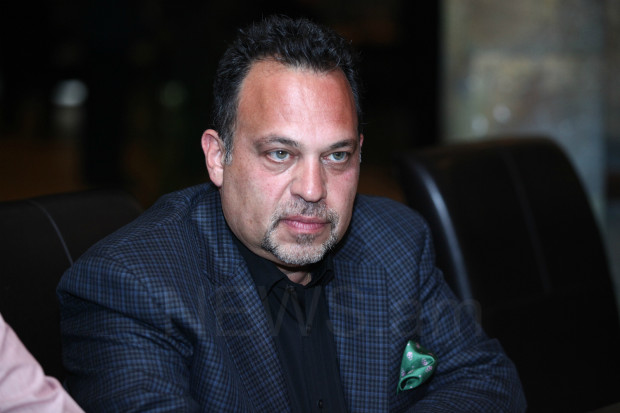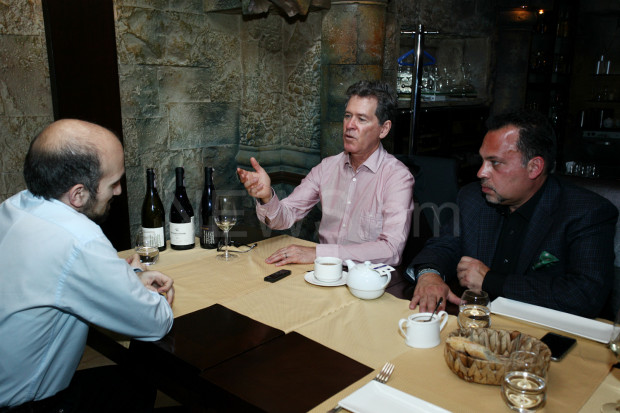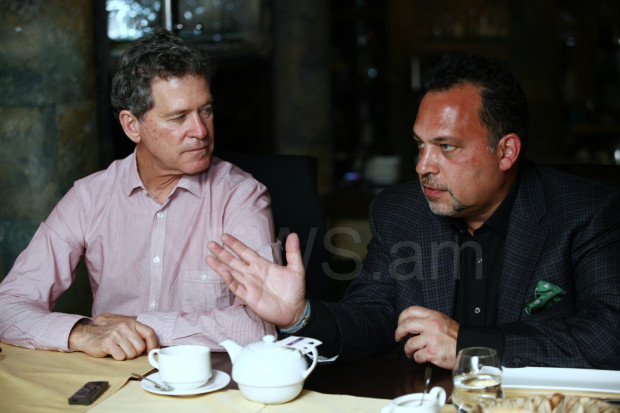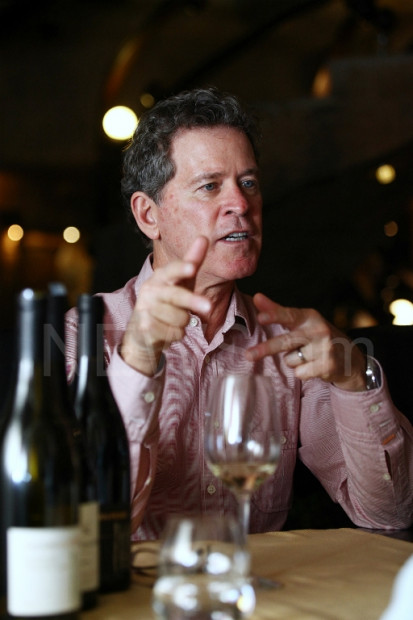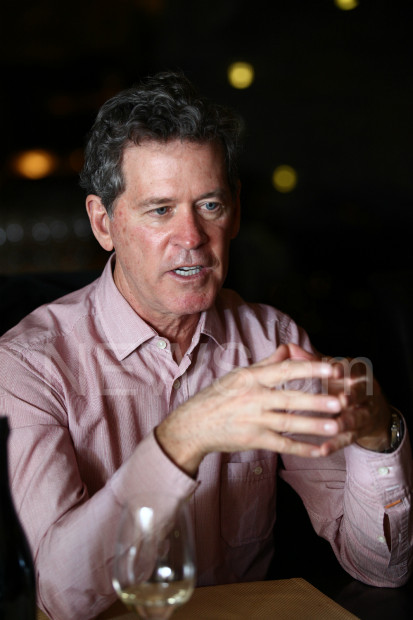YEREVAN. - To have a US expert teach winemaking might seem a most bizarre idea for Armenians. Oldest known winery (discovered in the territory of today’s Armenia) laid yet another claim for having “the best wines around.”
In reality, though, the few wineries that gained a foothold in the international markets, were developed with international investment and expertise. Mr Paul Hobbs, one of the top US winemakers, was among with those who gave a new push to winemaking in Argentina. For several years, he has also been making a project in Armenia, Yacoubian-Hobbs wines. Armenia has a good potential, but it requires much work to back up the historical legacy, Mr. Hobbs said in an interview with the Armenian News-NEWS.am correspondent.
Armenia has always been strong with brandy, which is more demanding to technology rather than vineyards. Seemingly this doesn’t work for wine.
It’s like that anywhere in the world. You don’t need high quality grapes for brandy or sherry. It’s more about distillation and fermentation. If we want to give Armenian wine the same recognition as Armenian brandy has, we need to have vineyards no less advanced than processing.
Developing projects in Armenia takes more time than in any other country I’ve ever worked in. There are questions of logistics, availability of equipment and technology. Another task is training. Most of workers are not familiar with high-end winemaking. The good thing is that there are a handful of people that try to bring in training and technology. Most people don’t even know how to, say, prune the vineyard.
I set up my own winery in Argentina back in the 1990s. We had no money for large investment. So we sat down with farmers and worked upon contracts on what grape varieties we want. Just like we would possibly do here. What we did was radical and different. It took 20 years, but today, they match our expectations very well. We work with them on a weekly basis. We supply them with technology, expertise, talk about how to prune, how to spray, etc.
In Armenia here are a few modern projects. Eurnekian’s project is huge (by Armenian standards), and it’s self-contained. And we want to reach out to small growers. That’s never easy. But it will happen, as it has happened in other places.
Individual farmers hardly have access to enough finance for that.
In Mosel valley, there are small winemakers too, some even individuals. Each makes his own wine, which a producer may then collect and blend for a final product. And this is a really good wine, which is highly demanded. The world is looking for that.
One could argue this won’t work for a country with a smaller income than Germany, France, or Luxembourg.
Look at a country like Uruguay. 20 years ago they had no money, and wine industry was on its knees. They started to work together, and now you’ll find amazing vineyards over there. Once you realize what you need to do, potential investment will come. Just like now many Europeans are coming into Argentina.
There’s a popular belief in Armenia that local wine is the best. Winemakers (and policymakers alike) just fall short to promote it. Or, even if wine needs improvement, grapes are unquestionably the best on the globe.
As long as they hold that attitude, nothing will happen. Nationalistic attitude doesn’t take you very far. I’ve seen this problem in Hungary.
But in Hungary wine industry is way more advanced…
Comparatively yes. However, they don’t sell much outside. Still, when you’re in there, they tell you they have the best vineries. That’s the way not to move forward. If we stand by that, with all due respect to my friends in Hungary, than we will not advance.
If you compare anything you see in Armenia with the best vineyards around the world, we don’t compete. Nobody’s going to think about Armenia. The only way to change that perception is to stop thinking we’ve got the best vineyards. If we had, we would probably be making one of the world’s best wines right now. We should disabuse ourselves and open our minds. Yes, we have extremely high quality, now we need to work.
And it’s exciting to see that the Prime Minister and the Minister of agriculture really want to work in this way. This morning we’ve met with the Prime Minister and the minister of agriculture to talk about programs which would develop a broader awareness with the younger generation about new technologies and management in winemaking. And if we’re talking about the market, we need to remove some of the problems of appearance. If you drive to the market of Areni, you see people selling wine in plastic bottles.
For locals, it gives a homemade look.
But for foreigners, plastic is a cancerogene. And if they see wine marketed like this, they’re going to think this is a place for low quality wine. This is not going to help our cause, if we want international recognition.
With all this, we do have some assets. One of them is a large base of indigenous varietals, which may become a novelty in the market.
That’s going to be our bedrock. Ancient varieties, which are only from this part of the world, give us the identity that nobody else has. Now we need to find out how they perform in the state-of-the-art winemaking. And we want to compare how Armenia stacks up with other fine winemakers of the world. We don’t want to modify the strong culture and winemaking legacy of Armenia – and you know better than me how old it is. We just want to put a new spin on the industry, along with that legacy.
Is this what you help to do in Armenia?
That’s what we try to do. Winemaking has a slow business cycle. We had to plant our own vineyard, to find a site, bring the technology. We’ve just finished planting, so we’re just looking to 2020 when we’re going to have a commercial crop. We don’t have a winery and we’re not thinking seriously yet about having one. We have our fermentation tanks and barrels, but as for production, we lease a space elsewhere.
Better show by example than by talking. That’s what I learnt as a child in my own family. Now, with the work we do, we want to give a message that we don’t change the legacy. We want to keep and preserve this prestigious winemaking region. We want people to come here for a rich culture, for a good food and wine.
Wine as well as brandy…
Yes, we want them to think about fine wine. Internationally, if anybody knows of Armenia, it’s good brandy. It really is. But now we want to give them something else to think about.



